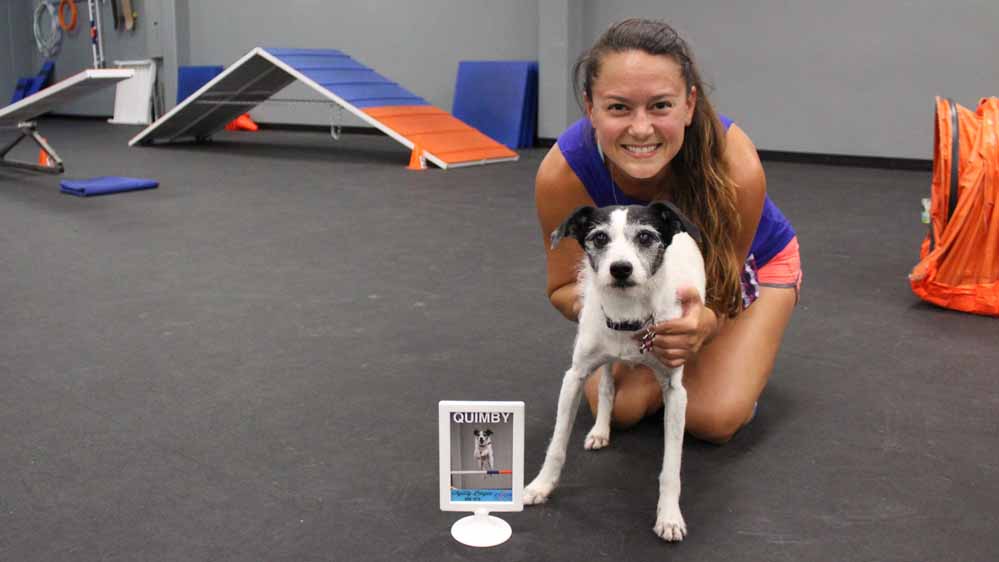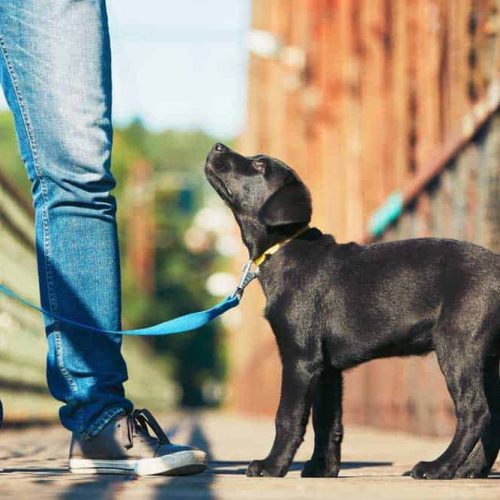The Benefits of Dog Training For Dogs: An Overview for Family Pet Owners
The Benefits of Dog Training For Dogs: An Overview for Family Pet Owners
Blog Article
Leading Pet Training Strategies for Every Phase of Your Pet Dog's Life
Efficient pet dog training is essential at every phase of a pet dog's life, as each phase provides distinct difficulties and possibilities for development. It is crucial to identify that training ought to advance along with a pet's advancement, making sure that methods continue to be pertinent and efficient.
Pup Educating Fundamentals
Puppy training fundamentals lay the groundwork for a well-behaved adult dog and entail a number of crucial elements that ought to not be neglected. The initial phase of training concentrates on developing a strong bond in between the young puppy and its owner, which is vital for efficient communication. Socializing is extremely important; exposing pups to different environments, individuals, and other animals aids them establish confidence and flexibility, lowering the probability of behavioral problems later in life.
Basic commands, such as sit, remain, and come, develop the foundation of obedience training. Using favorable support methods, such as deals with and appreciation, encourages wanted habits and cultivates a favorable discovering experience. Consistency in commands and training sessions is crucial, as puppies grow on regular and structure.
Furthermore, residence training is a crucial element of puppy training. Developing a normal routine for shower room breaks and utilizing designated areas can aid reduce mishaps and promote great habits. In general, a well-rounded strategy to puppy training, incorporating home, socializing, and obedience training, sets the phase for a well-adjusted grown-up canine, making sure an unified relationship in between the family pet and its proprietor.
Adolescent Behavior Monitoring
As puppies develop right into teenagers, their actions can change considerably, usually offering brand-new obstacles for proprietors. This developmental phase, typically taking place between 6 months and 2 years, is marked by increased energy degrees, inquisitiveness, and an expanding feeling of freedom. Understanding these changes is essential for efficient actions monitoring.
Teens may exhibit rebellious tendencies, such as disregarding commands they previously mastered or taking part in harmful habits. Consistency in training remains paramount; reinforcing learned behaviors via favorable reinforcement can aid neutralize these difficulties. Short, engaging training sessions are necessary to preserve their interest and emphasis.

In addition, establishing a structured routine can substantially boost a teen canine's complacency. Normal workout is crucial to funnel their power positively, decreasing the likelihood of unfavorable habits. By utilizing these methods, owners can successfully browse the complexities of teen habits, cultivating a well-adjusted, happy canine companion.
Adult Dog Obedience Strategies

Positive reinforcement stays a vital method; fulfilling good habits with deals with, praise, or play urges conformity. Uniformity is essential; the same commands and benefits must be made use of by all family members to avoid complication.
Integrating training right into everyday regimens can also be effective. As an example, method commands throughout walks or meal times, enabling training to blend effortlessly right into everyday life. Engaging in structured tasks, like dexterity programs or obedience classes, can additionally boost a dog's abilities while giving beneficial socializing possibilities.
It is very important to recognize that grown-up pets might also exhibit stubbornness or complacency. Adjusting training strategies to keep their passion, such as differing incentives or presenting new commands, can help sustain inspiration. In general, a continuous commitment to obedience training will certainly cultivate a well balanced and mannerly adult canine.
Senior Dog Adjustment Methods
Acknowledging the special requirements of senior dogs is essential for ensuring their comfort and wellness. As pet dogs age, they might experience a decline in mobility, vision, and cognitive function, necessitating customized adaptation approaches.
First, consider changing the living atmosphere. Ensure that the home is secure and obtainable; remove barriers and offer non-slip surface areas to stop falls. In addition, think about making more information use of ramps or steps to assist them access their favorite areas.
Second of all, exercise should be readjusted to represent lowered stamina and joint wellness (Dog Training For Dogs). Participate in much shorter, much more constant walks, and integrate mild activities like swimming, which can be useful for arthritic joints
Moreover, mental excitement remains vital. Use basic problem toys or take part in scent work to keep their minds sharp, while staying clear of overwhelming tasks that might annoy them.
Finally, routine vet check-ups are necessary to check health changes and change treatment regimens as necessary. By applying these adjustment approaches, you can enhance the high quality of life for your senior canine, ensuring they age gracefully and conveniently.
Lifelong Learning and Enrichment
While pets of every ages profit from finding out and mental stimulation, lifelong enrichment is specifically important for keeping cognitive wellness and psychological wellness in both elderly and more youthful canines. Involving tasks not just boost a pet's lifestyle however likewise reinforce the bond between the canine and basics its owner.
Enrichment can take numerous kinds, including interactive toys, puzzle feeders, and aroma job, which promote a canine's senses and urge analytical. Routine training sessions, incorporating new commands or methods, maintains their minds sharp and promotes a feeling of achievement. Socialization with other pets and people is equally essential, as it aids protect against behavior issues and cultivates versatility.
Moreover, incorporating workout into a dog's regimen is vital for overall health. Tasks like agility training, bring, or long strolls provide both physical and psychological stimulation, making certain canines remain happy and involved.
Lastly, think about varying the atmosphere by introducing brand-new areas for walks or playdates. This change can reignite a pet's interest and excitement for exploration. Long-lasting learning and enrichment not just contribute to a satisfying life yet also advertise an unified connection with your canine companion.
Verdict
Efficient pet dog training methods progress throughout a pet dog's life, addressing the unique needs of each developmental stage. Emphasizing regular mental stimulation, socialization, and physical workout cultivates a balanced and fulfilling life for canines.
Effective dog training is find this important at every stage of a canine's life, as each phase presents one-of-a-kind obstacles and possibilities for development.Puppy training essentials lay the groundwork for a well-behaved grown-up pet and include a number of essential components that should not be forgotten. On the whole, an all-around method to puppy training, incorporating socialization, house, and obedience training, establishes the stage for a well-adjusted adult pet dog, making certain an unified connection in between the family pet and its proprietor.
Many pet owners may find that adult pet dogs, while typically even more steady in behavior than their adolescent equivalents, still need consistent training to preserve obedience and good manners.Reliable pet training methods evolve throughout a pet dog's life, dealing with the one-of-a-kind requirements of each developmental phase.
Report this page